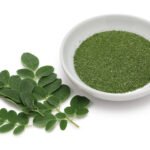 25 March 2025
25 March 2025Top 10 Medicinal Herbs in India
India has long been a treasure trove of medicinal herbs, with Ayurveda harnessing the power of nature to heal the body and mind for over 5,000 years. These herbs offer solutions for stress, immunity, digestion, and overall well-being, making them essential in natural healing.
From everyday spices to powerful adaptogens, these herbs continue to shape modern wellness practices. Let’s explore some of the most potent medicinal herbs in India and their profound health benefits.

1. Tulsi (Holy Basil) – The Queen of Herbs
Tulsi, often revered as sacred in Indian households, is much more than a religious plant. Known for its immunity-boosting, antibacterial, and anti-inflammatory properties, Tulsi is a natural remedy for respiratory infections, stress relief, and digestion.
Drinking Tulsi tea daily helps in managing colds, coughs, and flu, while its antioxidant properties protect against free radical damage. Tulsi also aids in reducing stress by lowering cortisol levels, making it an excellent herb for mental well-being.
For best results, Tulsi leaves can be chewed fresh, infused in water, or consumed as herbal tea.

2. Ashwagandha – The Natural Stress Reliever
Ashwagandha, also known as Indian ginseng, is a powerful adaptogen that helps the body manage stress. It has been widely used in Ayurveda to enhance physical endurance, improve sleep quality, and boost brain function.
Regular consumption of Ashwagandha reduces anxiety and fatigue, promotes muscle growth, and supports heart health by lowering cholesterol levels. It is commonly consumed in powdered form with milk or as a supplement to improve energy levels and mental clarity.
If you struggle with stress or fatigue, incorporating Ashwagandha into your routine can help balance your body’s response to physical and mental challenges.

3. Moringa – The Superfood for Wellness
Moringa, often called the “miracle tree,” is one of the most nutrient-dense plants on Earth. Rich in vitamins A, C, and E, calcium, and antioxidants, it strengthens the immune system, enhances skin and hair health, and supports heart function.
Moringa leaves are commonly dried and powdered to be used in smoothies, teas, or even sprinkled over salads. It helps regulate blood sugar levels, making it beneficial for people with diabetes, and its high fiber content promotes digestion and gut health.
Consuming Moringa daily can help combat nutritional deficiencies and improve overall vitality.

4. Giloy – The Ultimate Immunity Booster
Giloy, also known as “Amrita” in Sanskrit, meaning the root of immortality, is one of the most powerful Ayurvedic herbs for immunity. It works as a natural detoxifier, cleansing the blood, boosting digestion, and reducing chronic inflammation.
Giloy juice is highly effective in preventing seasonal infections, strengthening the body’s defenses against viruses and bacteria. It is also beneficial for those suffering from arthritis, as it reduces joint pain and stiffness.
Drinking Giloy juice or taking it in capsule form can improve overall well-being and keep infections at bay.

5. Turmeric – The Golden Healer
A staple in Indian kitchens, Turmeric is not just a spice but a powerful medicinal herb. The active compound curcumin gives Turmeric its anti-inflammatory, antibacterial, and antioxidant properties.
Turmeric is widely used for boosting immunity, improving skin health, and aiding digestion. It is also highly effective in reducing joint pain and swelling, making it a natural remedy for arthritis.
Drinking Turmeric milk or consuming it in food regularly can help in faster recovery from illnesses, detoxifying the body, and enhancing overall vitality.

6. Neem – The Natural Detoxifier
Neem has been used in Ayurvedic medicine for centuries to purify the blood and treat skin disorders. It is known for its antibacterial and antifungal properties, making it highly effective in treating acne, dandruff, and oral infections.
Drinking Neem water or using Neem oil on the skin can help maintain clear, healthy skin. Neem also supports digestion by flushing out toxins and promoting gut health.
For oral care, brushing with Neem twigs or using Neem-based toothpaste can help prevent cavities and gum infections.

7. Fenugreek – The Metabolism & Digestion Booster
Fenugreek is an ancient medicinal herb commonly used for digestive health, blood sugar regulation, and hormone balance. It is packed with fiber, antioxidants, and anti-inflammatory compounds, making it highly beneficial for metabolism and gut health.
Fenugreek seeds help in controlling blood sugar levels, making them an effective natural remedy for diabetes management. They also aid in weight loss by suppressing appetite and improving digestion. For lactating mothers, Fenugreek has been traditionally used to enhance milk production. Consuming soaked Fenugreek seeds in the morning or using Fenugreek powder in meals can significantly improve digestion and metabolism.

8. Aloe Vera – The Skin & Gut Healer
Aloe Vera is a widely used medicinal plant known for its soothing and hydrating properties. It helps in treating skin conditions like burns, acne, and dryness while also improving digestive health.
Drinking Aloe Vera juice supports gut health by reducing acidity, aiding digestion, and improving hydration. It also boosts the immune system and flushes out toxins from the body.
For skincare, applying Aloe Vera gel directly on the skin helps heal wounds, reduce inflammation, and prevent infections.

9. Ginger – The Digestive & Anti-Inflammatory Powerhouse
Ginger is one of the most widely used medicinal herbs in India, known for its powerful anti-inflammatory, digestive, and immune-boosting properties. It helps alleviate nausea, bloating, and indigestion, making it a go-to remedy for stomach issues.
Ginger is also highly effective in reducing muscle pain, joint stiffness, and headaches due to its anti-inflammatory compounds. It supports heart health by improving circulation and lowering cholesterol levels. During cold and flu season, drinking ginger tea with honey and lemon can provide quick relief from sore throats and congestion.
Whether consumed fresh, as a tea, or in powdered form, Ginger is a versatile herb that promotes overall well-being and keeps the body energized.

10. Triphala – The Gentle Detoxifier
Triphala, a blend of Amla, Bibhitaki, and Haritaki, is one of the best natural remedies for digestive health. It works as a gentle laxative, promoting regular bowel movements and detoxifying the gut.
Triphala powder or capsules are commonly used to cleanse the digestive system, improve nutrient absorption, and prevent constipation. It also strengthens the immune system and helps in weight management.
Incorporating Triphala into your routine can significantly improve gut health and overall detoxification.
How to Incorporate These Herbs into Daily Life
Adding medicinal herbs to your lifestyle is easier than you think.
- Drink Herbal Teas: Tulsi, Giloy, and Ginger teas are great for relaxation and immunity.
- Use Herbal Powders: Mix Ashwagandha, Moringa, or Turmeric powders into smoothies or warm milk.
- Apply Topically: Use Aloe Vera and Neem for skin and hair care.
- Cook with Healing Spices: Incorporate Turmeric and Triphala in your meals for added health benefits.
Final Thoughts
India’s rich heritage of medicinal herbs offers natural solutions to health concerns ranging from immunity to stress relief. Whether you seek enhanced digestion, detoxification, or mental well-being, these herbs can be a valuable addition to your daily routine.
By embracing the wisdom of Ayurveda, you can take a step toward a healthier, more balanced life, naturally.





